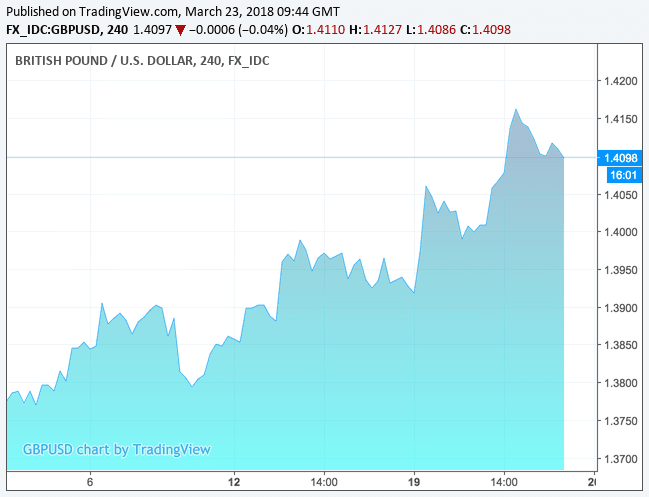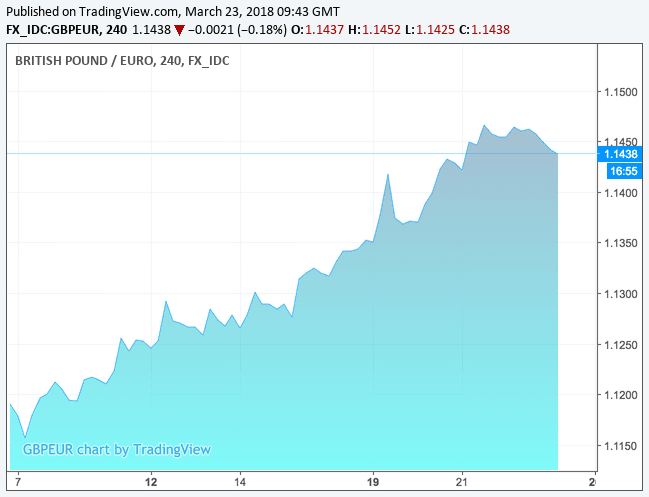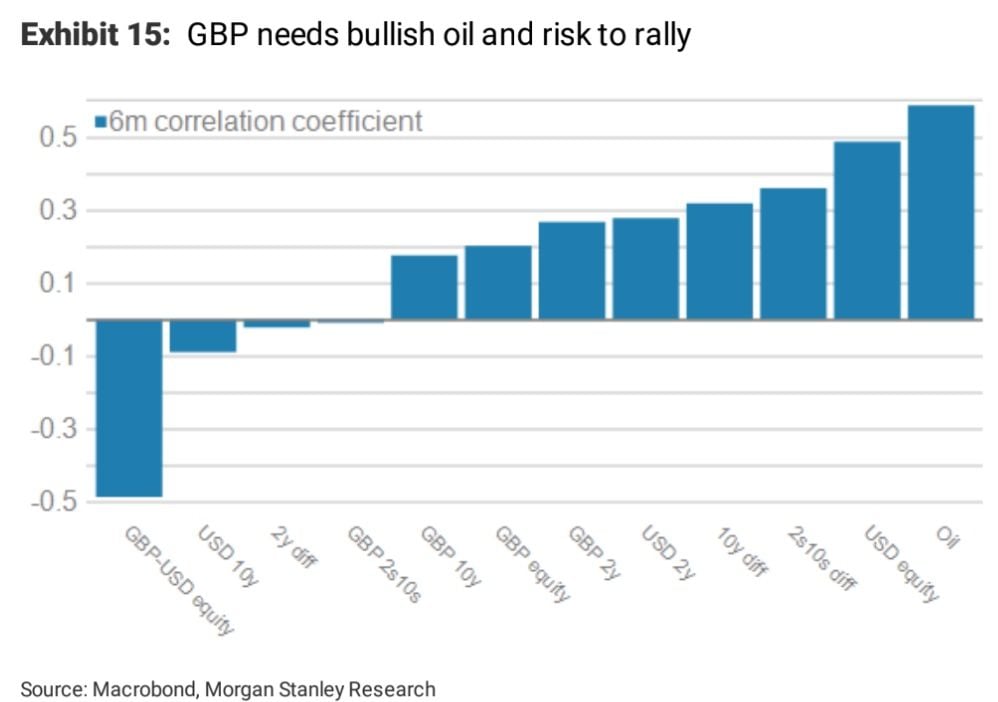Pound Needs Stock Market Recovery to Continue Upward Trend Against Euro and Dollar
- Pound correlated to performance of global markets we are told
- Morgan Stanley say Pound could benefit should trade conflict find early resolution
- Global markets under selling on appointment of uber-hawk Bolton as Trumps National Security Adviser

© Kasto, Adobe Images
Pound Sterling's recent strong run could be put in jeopardy by a sustained period of global stock market selling we are told.
The Pound's recent run higher appears to have halted, just at the same time global markets have endured notable selling pressures over the course of the past 24 hours with developments in the United States being the key motive for investors to lighten exposure to equities.
The Dow Jones fell an eye-watering 724 points - or 3% - on news that the White House will be imposing sizeable import duties on China in an escalation of the Trump agenda to reshape US trade policies.
Also rattling markets is the appointment of John R. Bolton as Trump's national security adviser; the move "signals a more confrontational approach in American foreign policy at a time when Mr. Trump faces mounting challenges, including from Iran and North Korea," says Mark Landler at the New York Times.
Asian markets appear to have sold off aggressively to both the trade tariff news and the suspicion that US foreign policy was headed in the direction that significantly raises geopolitical risks. Indeed, on February 28 Bolton wrote in the Wall Street Journal that there exists "a legal case for stroking North Korea first," giving a flavour of where the regime might be headed on issues such as North Korea and Iran.
Britain's FTSE 100 has seen selling much in line with its global peers having on Friday, March 23 and slumped to its lowest level since 2016.
And for Sterling, the sentiment of global investors and moves on the FTSE 100 matter.
"The risk-off context might also be slightly Sterling negative," says Piet Lammens at KBC Markets in Brussels.
The Pound is underperforming the majority of its global peers ahead of the weekend with the Pound-to-Euro exchange rate quoted lower at and the Pound-to-Dollar exchange rate quoted lower at 1.4108.

Above: The GBP/USD exchange rate's trend is higher, but the move higher has been questioned over the past 24 hours.

Above: The Pound has also retreated against the Euro
The losses are not sizeable by any means but what we are witnessing here is a new theme that might well influence direction in the UK currency over coming days and weeks should global market sentiment continue to deteriorate.
Hans Redeker, an analyst with Morgan Stanley says the Pound is "good when risk recovers" noting that "GBP has regained its correlation to risk and oil, suggesting that Brexit-related risks have been priced out."
The UK economy is an open one, and therefore exposed to the global growth story and should this positive story fade, it could be problematic for the UK.
"Given GBP's tight correlation to oil and equities, the curren t trade tensions and theirnegative risk implications are likely to weigh," says Redeker.
"Positive Brexit news is in the price, suggesting that for the GBP to remain supported it may require the help of the BoE and continued robust data readings. However, should trade tensions come to an early resolution, GBP may belong to our FX outperformers, with rising shares and risk assets working as the catalyst," adds Redeker.
For the Pound to continue its recent winning run, it would therefore appear necessary to have global stock markets moving higher once more, something that some analysts do believe possible.
"Risks of trade war not to be overestimated," says Felix Ewert, an analyst with S.E.B. who says while rhetoric is heated, "the US measures in fact account for less than 2% of total US imports, which likely does not have much impact on overall economic growth or the inflation rate."
Wert adds that initial Chinese countermeasures are mild, which may indicate that both nations are open for negotiations pending the 45-day period to actually introduce the tariffs.
Meanwhile, Nafta, the EU and US allies such as Australia and Korea have already been exempt from the previously imposed steel tariffs, further easing tensions and any countermeasures from the EU are now temporarily off the table.
"Markets are overreacting to President Donald Trump’s threats of a trade war," says Peter Rosenstreich, an analyst with Swissquote Bank in Gland, Switzerland who says there remain expectations for a favourable outcome with limited escalations based on negotiations.
"In our view Trump his using issue for political gain rather than actual trade repositioning. This action gives Trump a nice bullet point for stump speeches on the 2020 campaign trail. But he gains little from sparking a full-blown trade war. In addition, countries still taking grievances to WTO indicated trade remain within a management framework," adds Rosenstreich.
Advertisement
Get up to 5% more foreign exchange by using a specialist provider to get closer to the real market rate and avoid the gaping spreads charged by your bank when providing currency. Learn more here.





